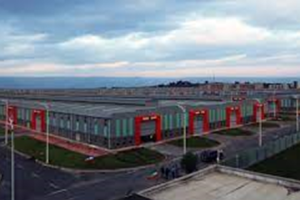
BY MENGESHA AMARE
Almost two weeks ago, this writer went to Assosa, Benishangul Gumuz capital, to report about the all rounded situations taking advantage of the celebration of the 35th Tourism Day at national level under the theme, “Rethinking Tourism”
Yes, tourism has recently gained significant strides as a poverty reduction strategy for developing nations like Ethiopia. Despite its huge potential, the tourism sector in Ethiopia has yet to develop to a point where it can make a significant contribution to Ethiopia’s economic growth.
The main challenge the tourism sector is facing until now among many things are shortage of promotion, lack of infrastructure, lack of quality accommodation and the likes.
In connection with the tourism day celebration, this writer approached experts who have, in one way or another, relation with the sector. Assosa University Agriculture and Natural Resources College Dean, Dr. Fekadu Zewdie, said that Ethiopia is endowed with rich historical relics which, combined with the hospitality of its people, make it viable for tourism. The government has lined up abled professionals to work within the industry and there is the right political will in place to contribute towards tourism.
He said, “The government of Ethiopia is currently implementing a number of strategic measures to further develop the country’s tourism sector, including investment in infrastructure and capacity building on destination management and product development through the ministry of Tourism and its partners.”
He further stated that Ethiopia has well embarked on the tourism sector and in particular for integrating tourism as part of its development policy. “Tourism is a key tool to lift people out of poverty and create new opportunities.”
“The steps being taken by Ethiopia, for instance, enhancing the protection and conservation of tourist attractions; expanding the tourism infrastructure; establishing tourist attraction sites and a national tourism council as well as increasing education and training institutions in the field of tourism, will surely make tourism a pillar of the economic development of the country,” he added.
“The Tourism Transformation has been focused on building Ethiopia’s natural, historical and cultural resources with a view to strengthening the tourism sector, identifying pressing value-chain gaps and intervening to allay these gaps based on tangible and scientific reasons. Together, all Ethiopians in general and Benishangul Gumuz community in particular have to work hand in hand to make tourism one of the leading economic sectors of our country and making Ethiopia a top tourism destination in Africa,” Dr. Fekadu said.
As tourism expands more and more spatially, its networks will be expanded to well contribute a great deal to the economic sector. Without a shadow of doubt, in recent decades, tourism is rightfully considered a truly worldwide phenomenon, with multiple and deep implications in all aspects of life. In many countries, of course, tourism is now taken for granted as part of people’s lifestyles and has become an important determinant of social status. Tourism today plays the most important role in bringing peoples, countries and regions closer together than ever.
According to Dr. Fekadu, tourism must be viewed and encouraged as a bridge between peoples and a factor for strengthening peaceful international cooperation, economic development and a means of reinvigorating people-to-people as well as country-to-country relations. However, by the same token, tourism will be the first to suffer as a result of conflict or tension within and between countries, and pandemics such as COVID 19.
Ethiopia’s enormous historical and cultural patrimony, hospitality and coexistence offer a bright future for so-called cultural tourism. Tourism and culture are important because they are eminently humanistic and peaceful approach, he added.
As to him, the spread of information technology influences tourist choices by making tourist information easily accessible through digital media. Here, tourism professionals have an obligation to provide tourists with objective and honest information on their places of destination and on the conditions of travel, hospitality and stays, such as very preferable places for tourist like the Benishangul Gumuz state, which is endowed with a multitude of tourist attraction sites.
Tourists and visitors should benefit, he said in compliance with international law and national legislation, from the liberty to move within their countries and from one State to another; they should have access to places of transit and stay and to tourism and cultural sites without being subject to excessive formalities or discrimination.
Tourists and visitors should have access to all available forms of communication, be they are internal or external, and they should benefit from prompt and easy access to local administrative, legal and health services, he stated.
According to Dr. Fekadu, tourism is unequivocally a vehicle for economic development as it could be considered as a valuable development opportunity for Ethiopia. The sector can provide the nation and its citizens with job opportunities, support the establishment of small, medium and large enterprises and lead to skills’ development in tourism and support services.
Besides, it could contribute to rural development, improve infrastructure and ultimately contribute to the overall economic development of the country.
He said that diversification of the economy and export driven growth are important contributors to sustainable economic growth. Ethiopia with numerous mineral resources, like what is found in Benishangul Gumuz state, has opted for a strategy of industrialization to help it on its growth trajectory.
He said, “If the country focuses on the tourism sector, the sector can contribute to the development needs of the country, enhance economic diversification, and support export driven growth as tourism is a foreign revenue generator thereby contributing a lot to economic growth and development for developing countries such as ours.”
Meanwhile, Dr. Fekadu underscored that the college is working in collaboration with a number of development partners for improving the livelihood of the community in the state.
He said Assosa University is capitalizing on training development Agents and agricultural extension workers with a view to reinvigorating community-centered animal species and seed multiplication, water and soil conservation, barren land protection. This is done hand in hand with reinvigorating the tourism sector.
According to Dr. Fekadu, not only is the college working for producing competent experts through education and training to help them have knowledge and skill, it is also working hard to equip them to diligently serve the community. Besides, the college is helping the community get Arabica coffee and coordinate them rescue the incense trees.
Assosa is strategically positioned to leverage tourism for Ethiopia, a center of many tourist attraction sites and numerous cultural, archaeological, historical, and religious attractions. Assosa could be speedily developed as an immediate intervention in tourism development though a lot remains to be carried out.
As to him, there is a notable lack of communication, effective utilization of natural resources like mineral resources as well as tangible and intangible resources. In order for Assosa, Benishangul Gumuz State to develop its tourist potential, the access routes and attraction complexes need to be improved.
He said, “Sustainable growth of the tourist industry is depicted in terms of social success and economic development in the country. The urgent economic necessity to develop the tourism industry in Ethiopia in general and in Assosa in particular has to be well focused on to help the country reap what it deserves out of this smokeless industry. He underscored that promoting the tourism sector is of paramount importance in creating employment opportunities, supplying goods and services, establishment of small and micro tourism businesses by the poor, and the likes.”
THE ETHIOPIAN HERALD WEDNESDAY 2 NOVEMBER 2022





